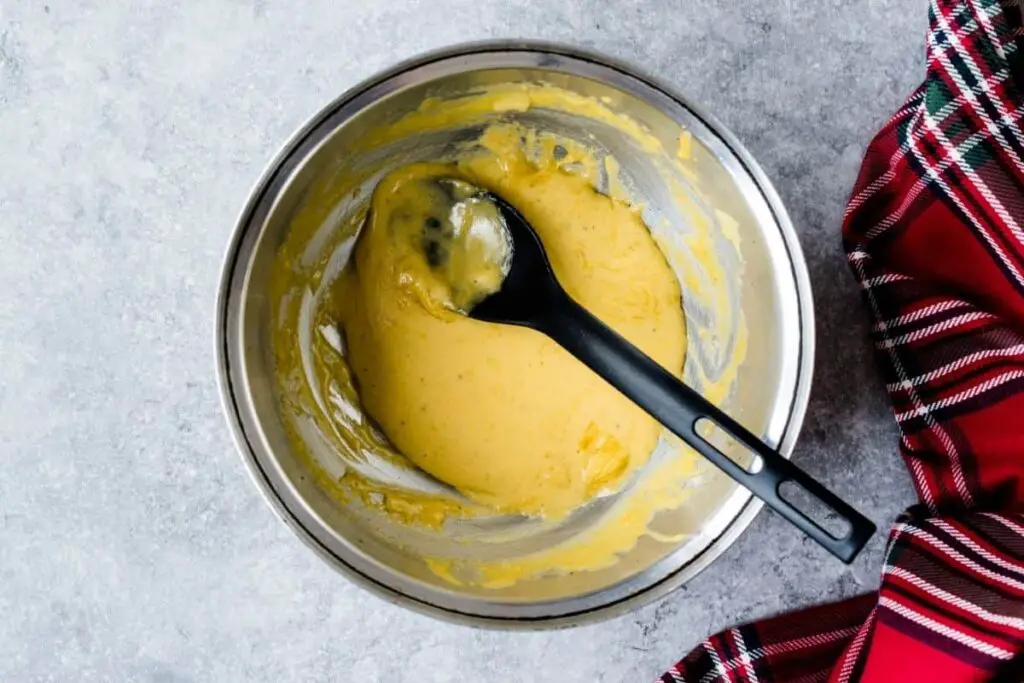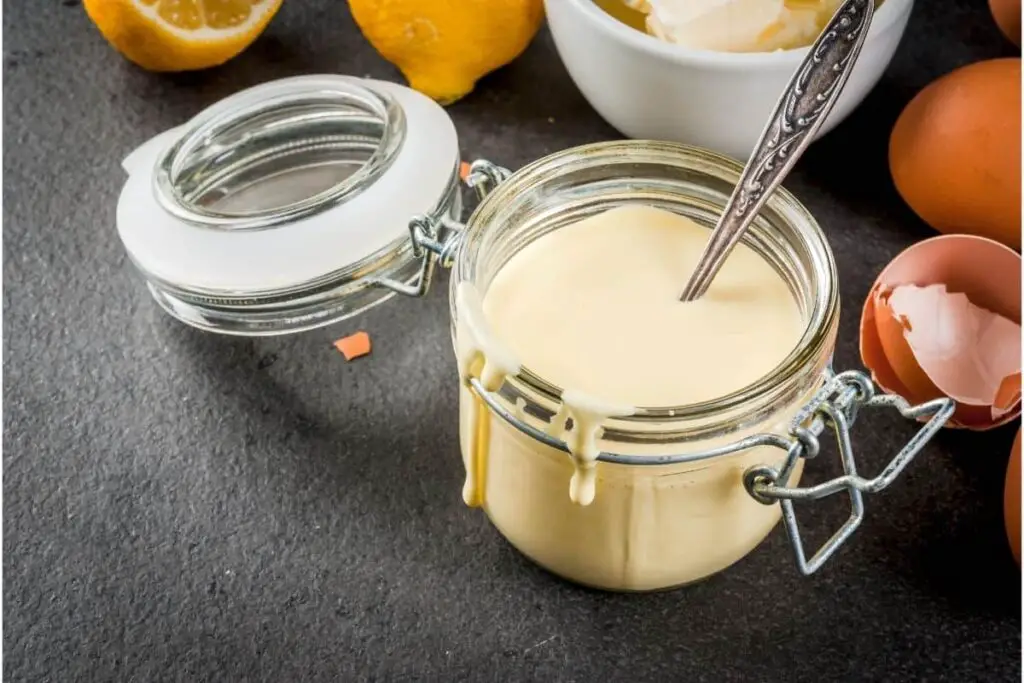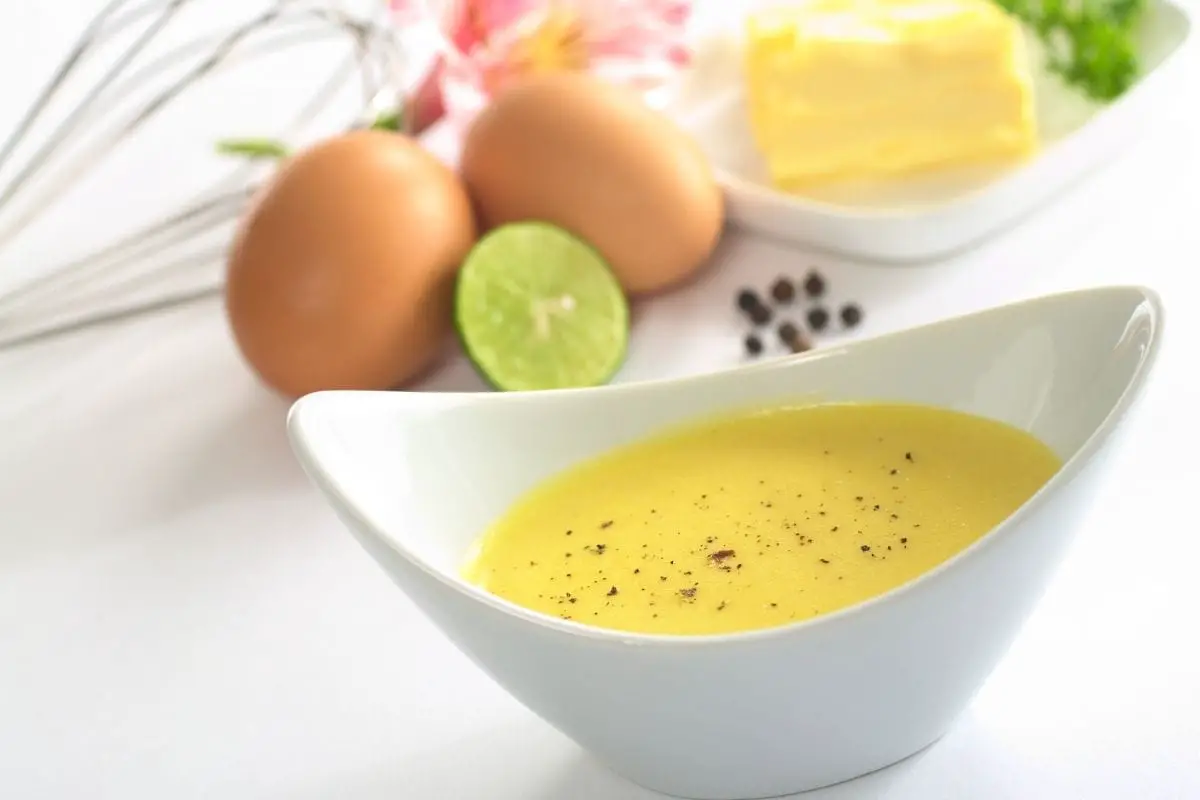Any good chef knows that a great sauce can make or break a dish. A bland meal can transform with a flavorful sauce. Even expertly-cooked food can fall flat without one. When it comes to rich, creamy sauces, there is none more delicious than Hollandaise.
Making Hollandaise Sauce from scratch is a great way to impress your guests at your next brunch. It’s also a lot easier than you might think. In this post, we will discuss how to make Hollandaise sauce and how long it lasts. We’ll also give you some tips on how to prevent it from going bad.
What is Hollandaise Sauce?
Hollandaise sauce is a classic French sauce made from butter, egg yolks, and lemon juice. Whisk the ingredients together until they form a thick, creamy mixture. The rich, creamy flavor is the perfect complement to eggs Benedict, asparagus, and more. This sauce is traditionally served warm, but you can also serve it cold.
Hollandaise was first created as a way for French cooks to add extra flavor to simple dishes. The cooks guarded the recipe and only shared it with professional chefs. In the 1900s, this tangy sauce began to spread throughout the culinary world. Hollandaise has become a popular sauce used in professional and home kitchens.
If you’re looking for a delicious way to elevate your next meal, try making Hollandaise sauce at home. It’s easier than you might think and your taste buds will thank you.
How to Make Perfect Hollandaise Sauce?
When it comes to Hollandaise Sauce, you can either make it from scratch or with a mix. If you’re short on time, the mix is the way to go. If you want to impress guests or have control over the flavor, make the Hollandaise from scratch.
What you’ll need:
- Egg Yolks – 3 eggs
- Lemon Juice – 1 tablespoon
- Cayenne pepper – 1 teaspoon
- Salt – 1/4 teaspoon
- Butter – 1/2 cup of melted butter
To make the sauce, you need a bowl, a whisk, and a saucepan. Start by placing the egg yolks, lemon juice, and water in a bowl and whisking until smooth. Place the bowl over a saucepan of simmering water. Continue whisking until the mixture thickens and forms a ribbon when you lift the whisk out of the bowl.
Once the mixture has thickened, remove the bowl from the heat and slowly add the melted butter. Whisk until smooth. Season to taste with salt and cayenne pepper. Serve immediately or keep warm until ready to serve.
While it may seem like a daunting task to make Hollandaise from scratch, it is quite easy. The key to perfect Hollandaise is all in the whisking. You’ll need to whisk vigorously while adding the butter. If you don’t, the sauce will curdle. But as long as you keep whisking, you’ll end up with a smooth and silky sauce that’s sure to impress.

This mixing and cooking process takes anywhere from 10 to 20 minutes, depending on the recipe. The result is a smooth sauce perfect for Eggs Benedict, asparagus, and more.
How to Fix Broken Hollandaise Sauce
The key to fixing broken Hollandaise sauce is to add a little bit of water, along with an egg yolk. Whisk the egg yolk and water together. Then slowly pour it into the sauce while whisking vigorously. This will help to thin out the sauce and smooth out any lumps. If the sauce is still too thick, you can add a little more water. Add a tablespoon at a time until it reaches the desired consistency.
Nutritional Value
Although it is known to be rich and decadent, Hollandaise sauce is quite healthy. Hollandaise sauce has only a few ingredients. It is an excellent source of protein and healthy fats. Also, it is low in carbohydrates and calories, making it a great option for those on a low-carb diet.
Calories: 67
Carbs: 0,29 g
Protein: 0,77 g
Fat: 7,12 g
Sugar: 0,06 g
Storing Hollandaise Sauce Properly
If you want your Hollandaise sauce to last as long as possible, it’s important to know how to store it.
There are several different techniques that you can use to store Hollandaise sauce. One common approach is to seal the sauce in an airtight container and refrigerate it until you are ready to use it. If it has separated or thickened in storage, whisk or stir it vigorously before using it again.
If you want to preserve Hollandaise sauce for a long time, freeze it in individual portions or ice cubes. Be sure to thaw your sauce before attempting to use it. Warmer temperatures can cause the flavors to degrade or the texture to become watery.
How Long Does Hollandaise Sauce Last?
If it’s kept in a sealed container in the fridge, it will last for up to 2 days. But if you freeze it, it will stay fresh for up to a month. If it’s left out at room temperature, it will only last for 1-2 hours before it starts to spoil.
Let’s take a closer look at how long Hollandaise sauce lasts if you store it in the proper manner.
Refrigerating Hollandaise Sauce
If you leave Hollandaise sauce at room temperature, it will only last for 1-2 hours before it starts to spoil. This is because the egg yolks in the sauce can start to grow bacteria if they’re not kept chilled. That’s why it’s important to refrigerate it.
To refrigerate Hollandaise sauce, use an airtight container large enough to hold the entire batch. Then, transfer the warm mixture into the container and seal it tight. Place the container in the refrigerator for several hours or overnight to cool.
You can keep your Hollandaise sauce for up to two days in the fridge. You can even mix it with a newer batch of Hollandaise sauce if you want to.
Freezing Hollandaise Sauce
If you’re looking to store your sauce for a longer period, put it in the freezer. Freezing Hollandaise sauce can be a tricky process. This is because sauces tend to separate when thawed. With a little know-how, it is possible to store Hollandaise sauce so that it is ready when you need it.
You should avoid freezing Hollandaise sauce in its liquid state. This will exacerbate the separation problem. Another important step is to keep the sauce in small batches that are no larger than 2-3 cups each. This will help ensure a consistent texture and avoid any excessive moisture buildup.
Once it’s frozen, Hollandaise sauce can stay in the freezer for up to a month. It will be easy to enjoy your favorite dishes on hectic days when you have little time to cook.
Thawing Hollandaise Sauce
If you decide to use your frozen Hollandaise sauce, it’s important to thaw it out beforehand. Like any delicate sauce, thawing a Hollandaise can be a tricky business.
If done improperly, the sauce will break, leaving you with a watery mess and your dish ruined. If handled with the proper techniques in mind, you can thaw Hollandaise with ease and keep it smooth.
One key trick is to start by warming up your sauce over low heat. Be sure to whisk it gently rather than stirring vigorously. You should also avoid letting the sauce be in contact with hot or cold kitchen surfaces. You may also leave your frozen Hollandaise sauce cubes in the fridge overnight.
Freezing vs Refrigerating Hollandaise Sauce – Which is Better?
Many cooks tend to prefer the freezing Hollandaise sauce over refrigerating it. There are some key differences between freezing and refrigeration. With freezing, foods are cut into small pieces and placed in an airtight container. Refrigerated foods remain in their original packaging and are kept in temperature-controlled environments.

Known for its texture and distinct flavor, Hollandaise sauce is finicky to make. The sauce often separates upon reheating. Freezing helps to prevent this separation by locking in all those precious oils and fats.
When frozen, Hollandaise sauce can last longer. This is the ideal food preservation technique for any home cook who likes to have plenty of sauces on hand.
Whether you prefer freezing or refrigeration, it all comes down to personal choice. Whichever method you choose will yield some delicious Hollandaise sauce.
Can You Freeze Store-Bought Hollandaise Sauce?
Luckily, you can usually freeze store-bought Hollandaise sauce with good results. The egg yolks used in Hollandaise are prepared in advance, so they are well-suited to thawing.
How to Tell If Your Hollandaise Sauce is Bad?
There are a few simple ways to tell if your Hollandaise sauce has spoiled. First, take a look at the sauce. If it’s separated into oily and watery layers, or if it has chunks in it, then it’s time to say goodbye. Next, give the sauce a sniff. If it smells sour or off, then it is not fit for eating.
Finally, give it a taste. If the sauce is sour or acidic, then it’s time to throw it out. With these simple tips in mind, you can be sure that your Hollandaise sauce is always fresh and delicious.
One of the most important things to know when making Hollandaise sauce is how to tell when it’s gone bad. After all, no one wants to eat a runny, curdled mess.
Can You Get Food Poisoning from Bad Hollandaise Sauce?
If it’s not made properly, Hollandaise sauce can cause food poisoning. This is because the sauce contains raw eggs, which can bring contaminants and bacteria. Ingesting these bacteria can cause nausea, vomiting, and diarrhea.
Can You Get Salmonella From Hollandaise Sauce?
It is a common misconception that you cannot get sick from Hollandaise sauce. Many sources say salmonella can be in this classic egg-based sauce. So it is important to take extra precautions when preparing and serving it at home.
One of the best ways to avoid getting salmonella is to ensure your ingredients are fresh and handled properly. This means killing any bacteria that may be present in the eggs before cooking. You should cook the sauce until the internal temperature is at least 165 degrees Fahrenheit.
The Takeaway
No matter the dish you are using it for, it’s important to know how long Hollandaise sauce lasts. Hollandaise sauce can last in the fridge for up to 2 days or in the freezer for up to a month. So, if you have some leftover Hollandaise sauce and don’t want to eat it right away, pop it in the freezer.
So, there you have it. Everything you need to know about Hollandaise Sauce, from how to make it to how long it lasts. We hope you found this blog post helpful and that you’ll give Hollandaise Sauce a try. Thanks for reading and check out our other recipes.


